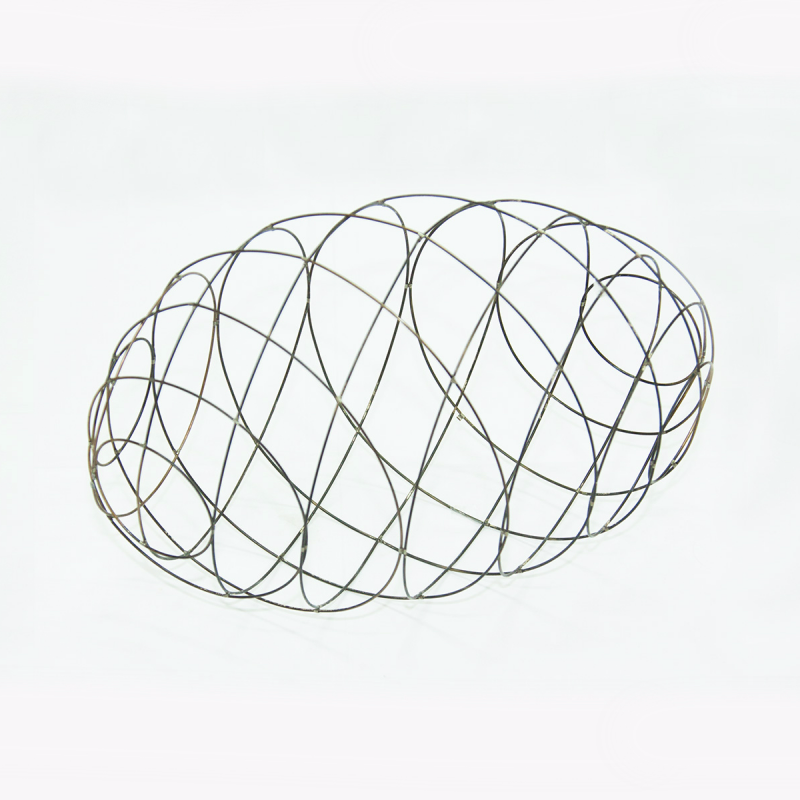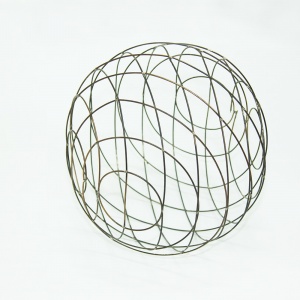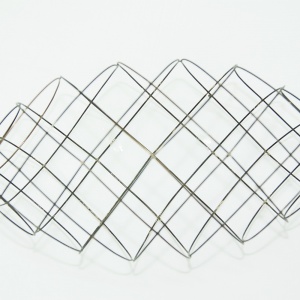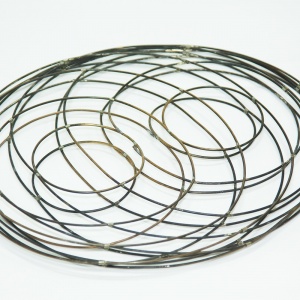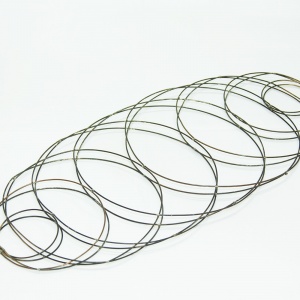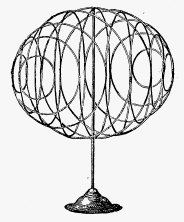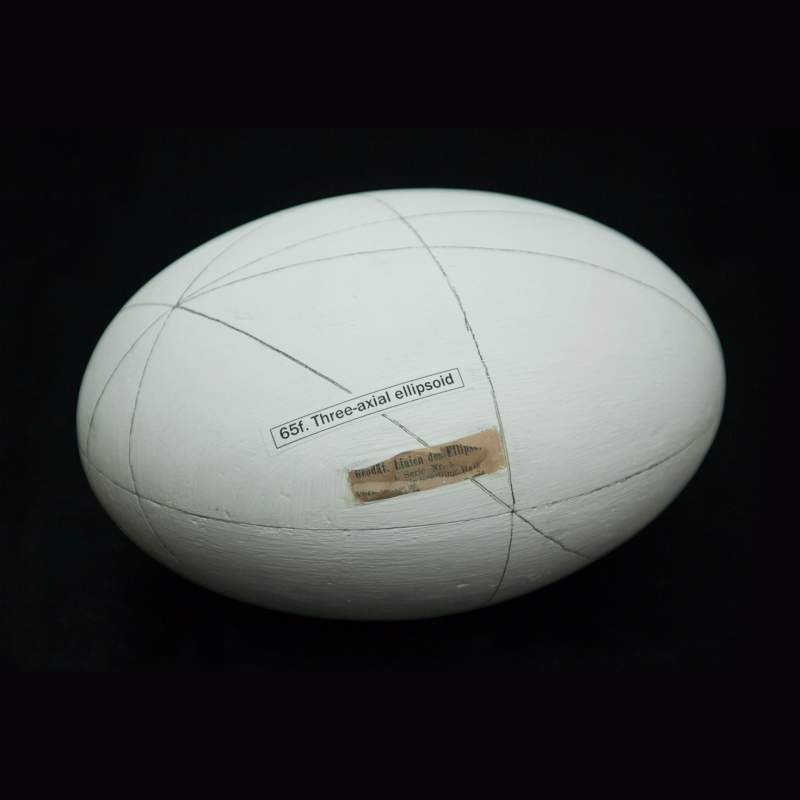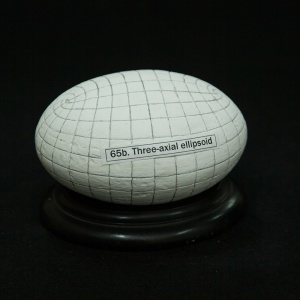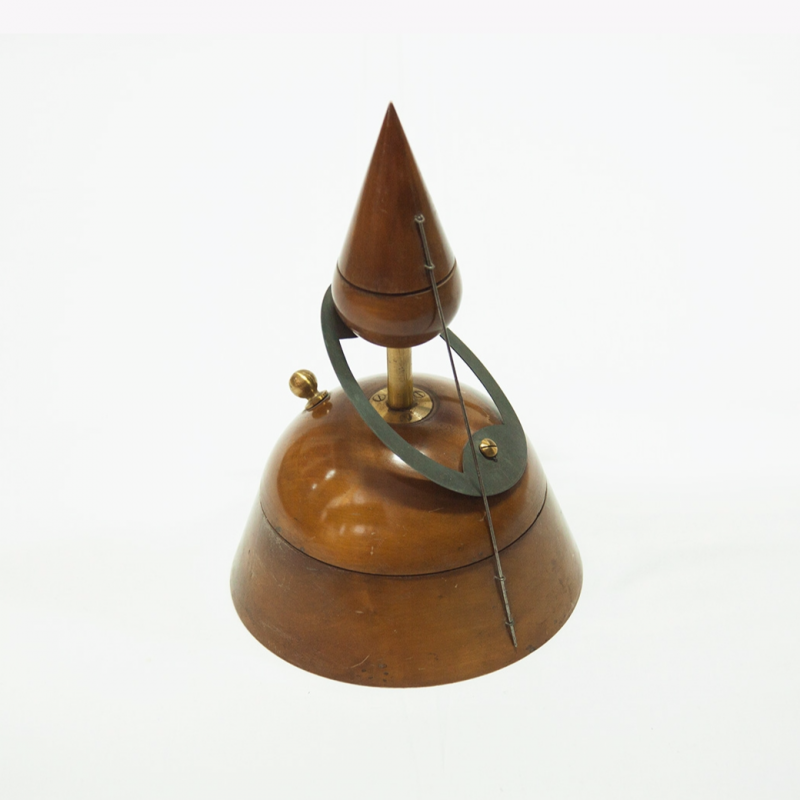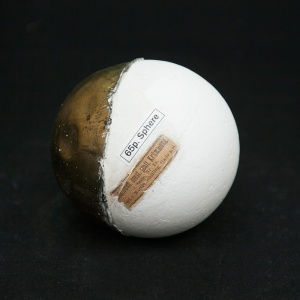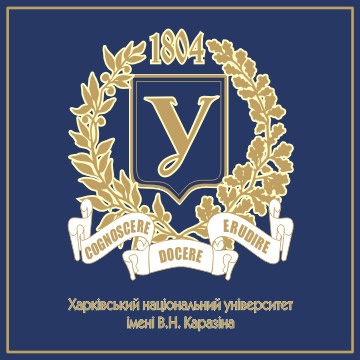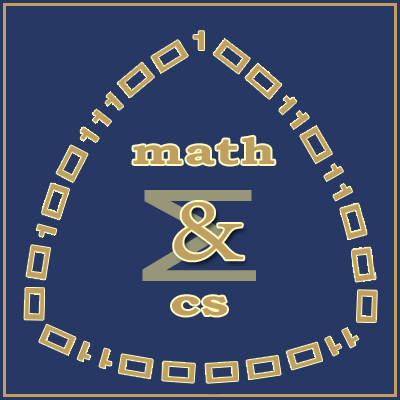Let us show that every three-axial ellipsoid can be cut with a plane passing through its center such that the section is a circle. In simple words, every mellon can be cut along a disc.
Indeed, suppose the ellipsoid is given in the standard Cartesian coordinates as
$\frac{x^2}{a^2} + \frac{y^2}{b^2} + \frac{z^2}{c^2}=1$,
and $a > b > c > 0$. Consider a plane $\Pi(\varphi)$ passing through the center, containing the $b$-axis and making an angle $\phi$ with $xOy$ plane.
By construction, $\Pi(0)$ is an ellipse in the $xOy$ plane given by
$\frac{x^2}{a^2} + \frac{y^2}{b^2} = 1$
with the semi-axes $a$ and $b$. At the same time, $\Pi(\pi/2)$ is an ellipse
$\frac{y^2}{b^2} + \frac{z^2}{c^2} = 1$
in the $yOz$ plane with the semi-axes $b$ and $c$.
Now, let's rotate around the $y$-axis a plane $\Pi(\phi)$ from $\Pi(0)$ to $\Pi(\pi/2)$. In each of the cuts of the ellipsoid with such planes we will get an ellipse with one semi-axis equal to $b$, and the other ranging from $c$ to $a$. Since $b$ lies between $c$ and $a$, by the Intermediate Value Theorem, there exist a value $\phi_0$ such that $\Pi(\phi_0)$ cuts the ellipsoid along the ellipse with both semi-axes equal to $b$ - which is a circle!
Another circle can be found for some $\varphi$ in the range $(\pi/2, \pi)$.
Analytically, these planes have the equations
$x + \frac{a\sqrt{b^2 - c^2}}{c \sqrt{a^2 - b^2}}z = 0$ and $x - \frac{a\sqrt{b^2 - c^2}}{c \sqrt{a^2 - b^2}}z = 0$.
Now let us justify the claim: if the plane $\Pi$ intersect the ellipsoid along a circle, then any other plane parallel to $\Pi$ also produces a circular cut.
This can be shown with the following beautiful argument. Rotating the coordinate axes if needed, we can assume that $\Pi$ coincides with the $xOy$ plane, and the equation of the ellipsoid takes the form:
$a_{11}x^2 + a_{22}y^2 + a_{33} z^2 + 2 a_{12} xy + 2 a_{13} xz + a_{23} yz + 2 b_1 x + 2 b_2 y + 2 b_3 z + c = 0$.
Since $\Pi$ (equal to $z=0$) intersect the ellipsoid along a circle, then by putting $z=0$ in the equation above we should obtain an equation of a circle. But the equation
$a_{11}x^2 + a_{22}y^2 + 2 a_{12} xy + 2 b_1 x + 2 b_2 y + c = 0$
is an equation of a circle only if $a_{11} = a_{22} = A$, and $a_{12} = 0$. Any plane parallel to $\Pi$ has an equation $z = h$, where $h$ is a given number. Such a plane intersect the ellipsoid along the curve given in $xy$ coordinates as
$A x^2 + A y^2 + 2x (a_{13} h + b_1) + 2 y (a_{23} h + b_2) + (2 b_3 h + c) = 0$,
which is also a circle (possibly degenerate) since the coefficients in front of $x^2$ and $y^2$ are equal, and the summand $xy$ vanished. This proves the claim.
